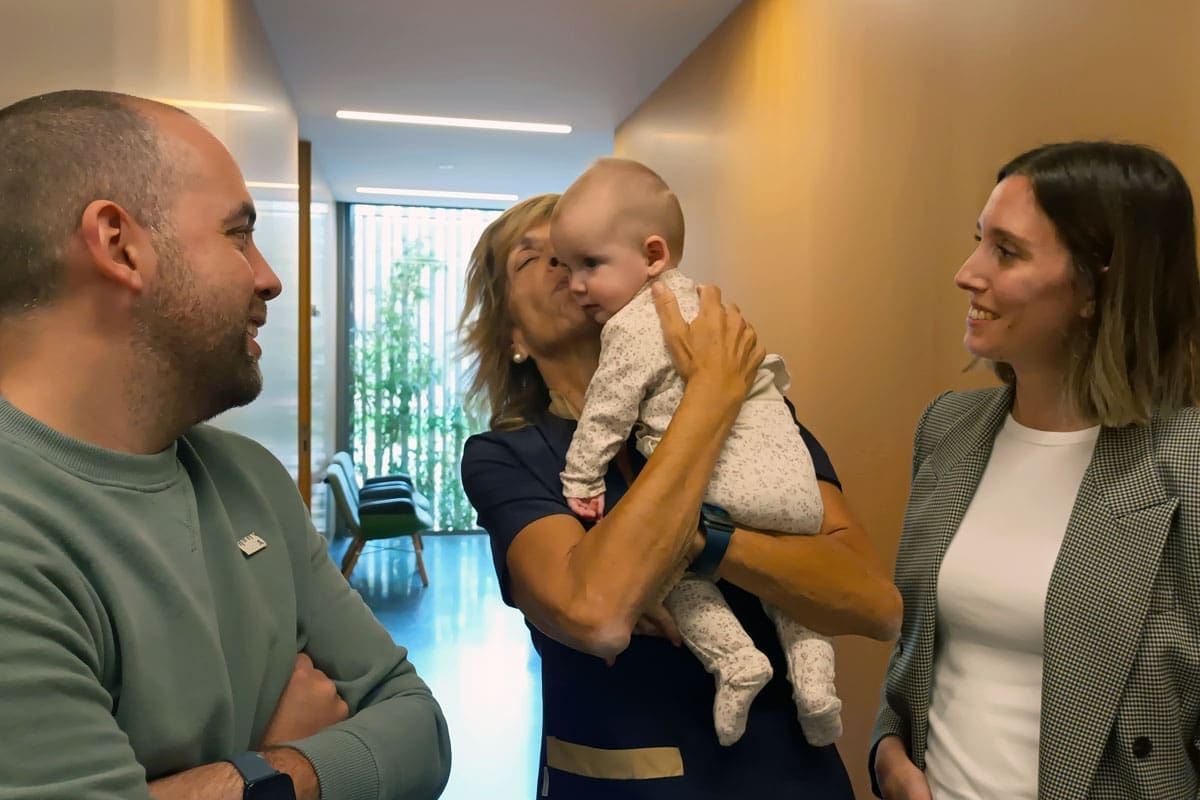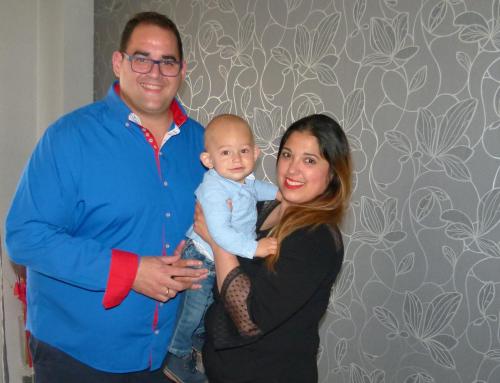Almudena and Alberto are a young couple who, like many others, came to Equipo Juana Crespo with the diagnosis that “everything was perfect”. However, after three years of trying, two naturally and one through the public health system, the positive result did not come. Even though everything seemed to be going well, they decided not to waste time, a wise decision that brought them to our clinic when they still had many reproductive options.
Their story begins in 2019, when they decided it was time to become parents. After a visit to the gynecologist in which all the tests went well, they started trying naturally. However, as the months passed, they suspected something was wrong. After eight months, they returned to the gynecologist, explained their situation, and were referred to the assisted reproduction service. Again, tests for both of them, and again, a diagnosis that everything was fine. Despite the unclear origin of the problem, Almudena underwent four artificial inseminations over the course of a year, all of which were unsuccessful.
After the inseminations, the protocol was to start IVF, but they had to wait a few more months. It was then that they decided not to waste time. Following the advice of some friends, they drove to Valencia, following the clear recommendation: “If you want to get it right, go to Equipo Juana Crespo”. They still remember those words, they heeded the advice and have no regrets.
The couple, who came from the “everything is perfect” scenario, had their first visit to our clinic, and Juana identified a uterine problem that needed correction. Developing a strategy was essential, but as the doctor stated from the beginning, “The road is broken, but it has a solution, and I know how to fix it.”
After the first consultation, Almudena and Alberto left with some trepidation about the diagnosis, but also happy and excited because someone was finally explaining the source of their problem. Although having a diagnosis scared them, it also brought them peace. This initial visit was a turning point for the couple. “It was like seeing the light at the end of the tunnel; it gave us a lot of hope,” says Almudena.
“We found it a very thorough first visit, they asked us for all kinds of evidence and most importantly, they knew what was going on,” he points out.
Once they had this visit they started with the procedure to start it as soon as possible, they did not want to waste time. Almudena had a retroverted uterus, which had caused retrograde menstruation and adhesions in the uterine walls; she had to undergo a hysteroscopy to clean the area and leave it ready to house the future embryo.
“I was afraid because it was all new, but I felt so supported by the whole team that I didn’t mind,” Almudena tells us.
“The initial transfer yielded a negative result, but, undeterred, the couple adjusted their strategy. The second attempt resulted in pregnancy. The couple openly admits that the day of the beta test was the happiest; they could not stop crying. “It was a moment we will never forget, it was the ending we had been dreaming of for so long,” they say.
Now, with their little girl in their arms, they look back and are certain they have no regrets, and they encourage other couples not to be afraid and to take the plunge. “Investing in our happiness has been the best decision we have ever made,” they conclude.”







